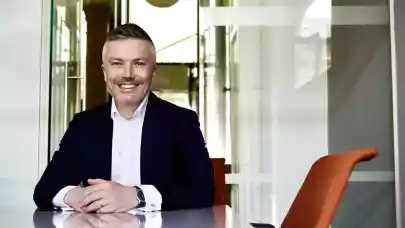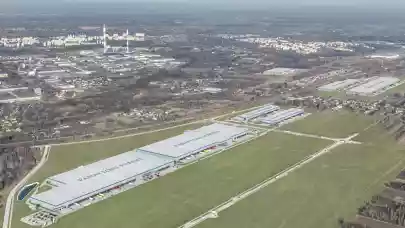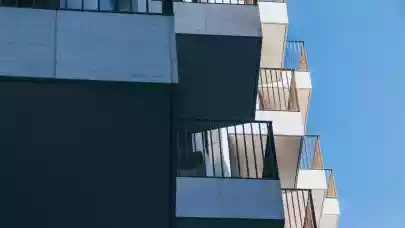
Tomáš Pardubický, CEO of Czech residential development company FINEP has talked to Property Forum about the necessary transformation of the real estate market and shared plans about the company’s expansion in the build-to-rent segment.
FINEP has built more than 15,000 flats in the Czech Republic, including 5,000 apartments for rent. Is that a lot or not enough for the Czech market?
FINEP Group builds apartments in Prague, Bratislava and Erdenet in Mongolia. In Prague, every year we have been delivering between 15% and 20% of the newly built apartments for all the last three decades. From this perspective, our production seems like an enormous number. However, in the eyes of the real estate market, it is still only a fraction of the necessary construction. Many independent studies suggest that Prague would need about double the rate of construction to cover the natural renewal of the housing stock and the demand created by economic migration to the big cities (urbanization).
How has FINEP been affected by the crises of the past three years (Covid, war, energy crisis, high interest rates, inflation)?
Within two years, the real estate market has transformed in virtually every economic aspect of its nature. Construction costs have risen unprecedentedly. Covid has "thrown in" about 40%, and the war in Ukraine another 40% (first a 60% increase with a subsequent correction of 20%). Thus, construction prices have almost doubled, and we are only at the threshold of green reforms that will undoubtedly cause further cost increases through all sorts of energy efficiency regulations on buildings.
High interest rates have virtually stopped individual purchases with mortgages and forced us to accelerate sales of cooperative and rental apartments. Energy prices have accelerated our consideration of alternative sources of heating and electricity supply. The pandemic has changed the way office space is used and increased pressure on the home office environment. Among other things, it has changed shopping behaviour patterns, increasing the need for last-mile logistics.
Changes have indeed been abundant and, looking at the biggest hatchery of regulation (Brussels), they will continue in the years to come. I know I will disappoint many readers, but the main outcome over the next five years will be a further decline in the affordability of owner-occupied housing and, of course, rising prices in primary production.
You joined FINEP from the banking sector. Is it better to pass through crises as a developer or a banker?
I have not completely left banking, I am still a member of the supervisory board of a bank. So I can answer with knowledge: it doesn't matter in which sector you go through a crisis. I am lucky that in both companies I work for, external changes are seen as an opportunity for innovation and not as an excuse for inaction.
How do you expect the Czech residential market to perform this year? Is it cooling down?
I think most developers will take a prudent approach and slow down the pace of construction. This will be commented on as a cooling of the market in the short term, but in the long term, it will only exacerbate the already high deficit of new apartments. I expect that the two main features of the residential market will be continued growth in interest in rental housing and a gradual increase in the price differential between new and older construction (especially for prefabricated “panel” apartments.
The market is already partly moving towards rental housing. Even FINEP has started to move into rental apartments. What are your plans in this segment?
Five years ago, we allocated about one-third of the apartments in our projects for rental housing. From today's perspective, I estimate that the proportion of new construction for rental housing will be significantly higher.
Our goal is to build apartment complexes suitable for rental housing, but we do not want to be a long-term owners, we leave this role to professional asset managers. I believe that it is right that Czech pension companies should become the main investor in rental housing, similar to the situation abroad. However, there is still a long way to go in terms of the necessary legislative changes.
FINEP also builds in Mongolia, a rather untypical country for Czech developers. Is your development business in such a distant country really due to our Olympic judo champion Lukáš Krpálek? And what plans do you have there now?
We started building apartments in Mongolia many years before Lukáš Krpálek beat Elmar Gasimov in Rio 2016. However, it is true that Lukáš's fame helped us to make FINEP even more visible in Mongolia, which loves all kinds of wrestling.
Every year we build hundreds of apartments in Erdenet, Mongolia, and we plan to continue to do so in the years to come. Moving from traditional yurts to modern European-style apartments is still attractive.
Do you plan to expand your business activities into other countries?
We do not plan further foreign expansion. However, I would have given you the same answer before entering the Mongolian market.



